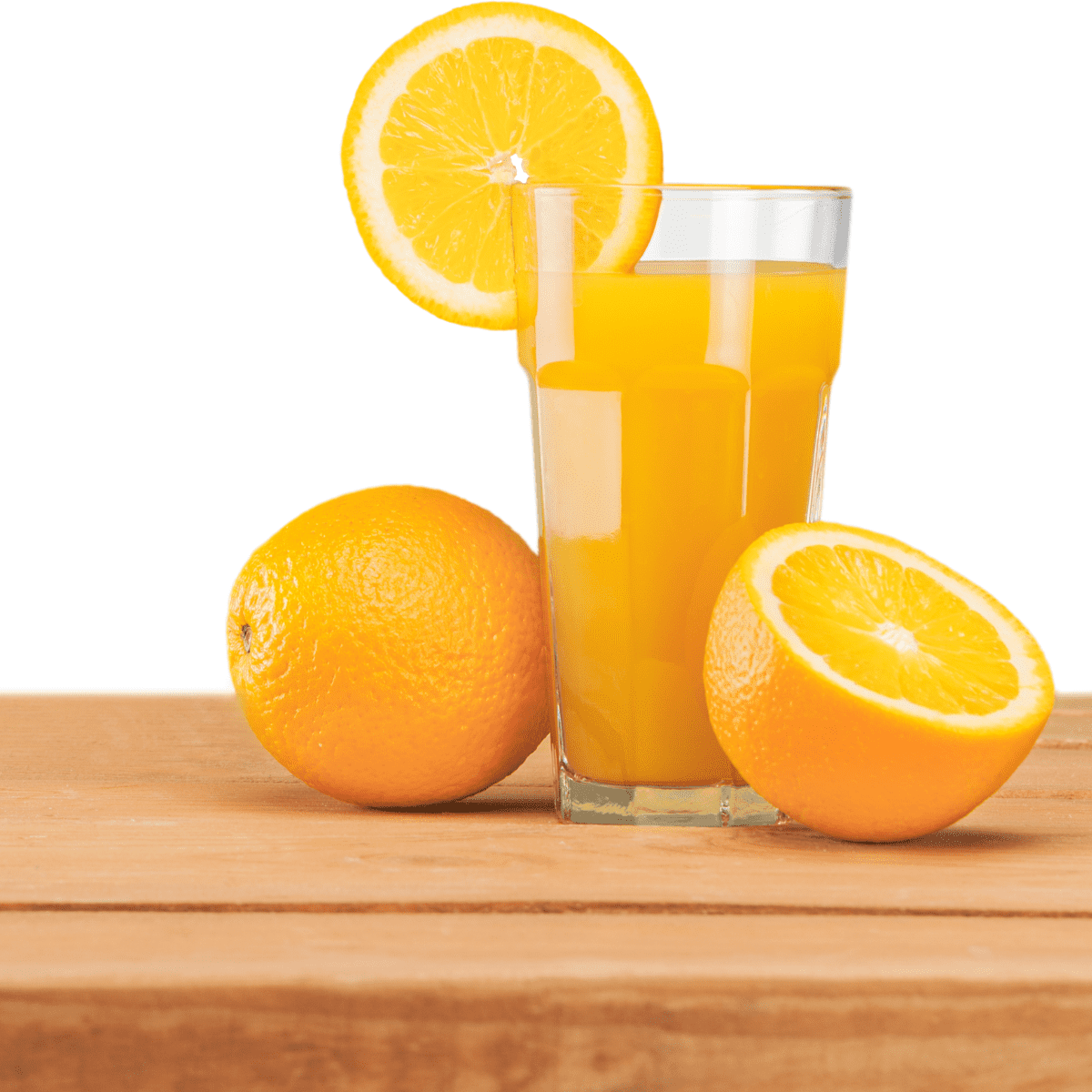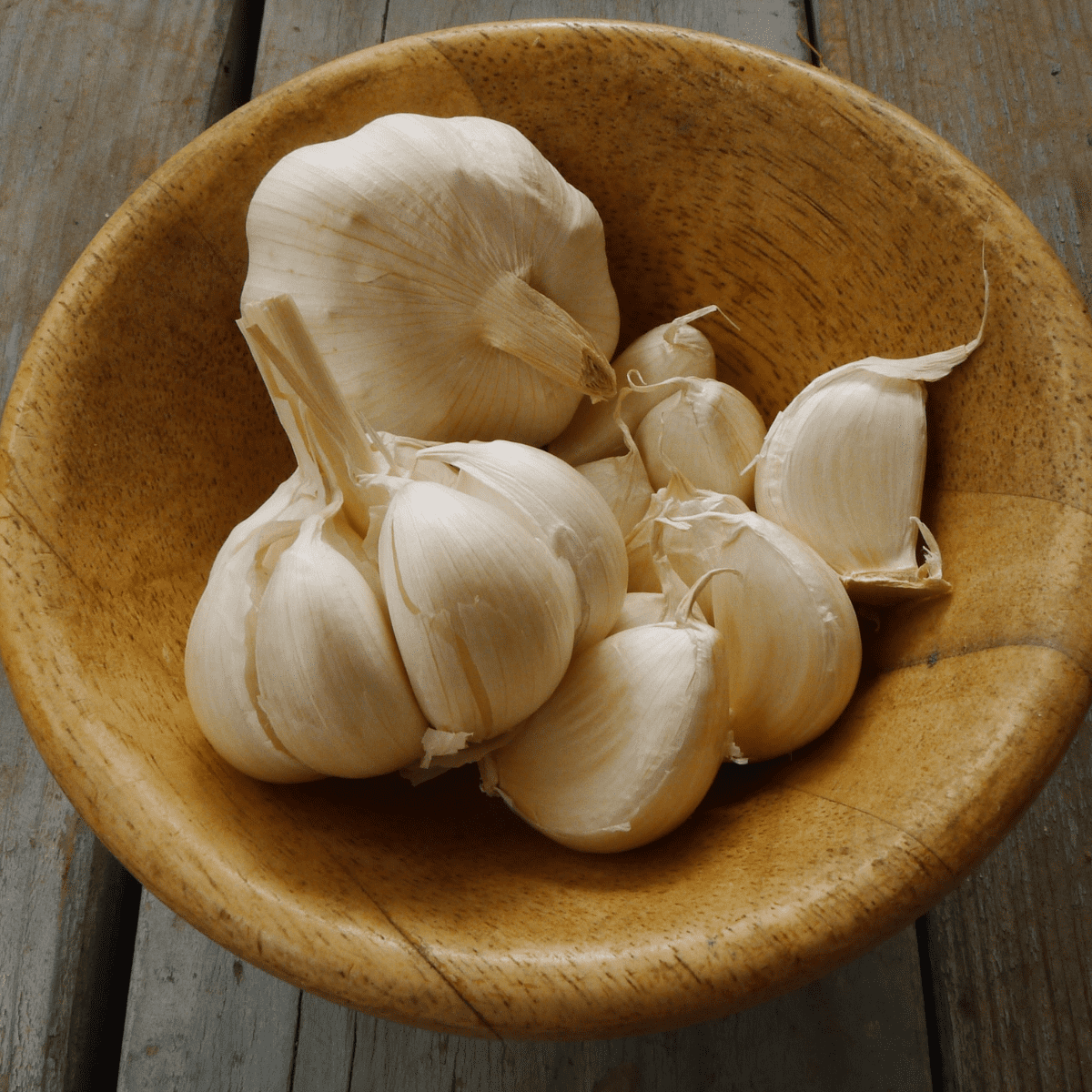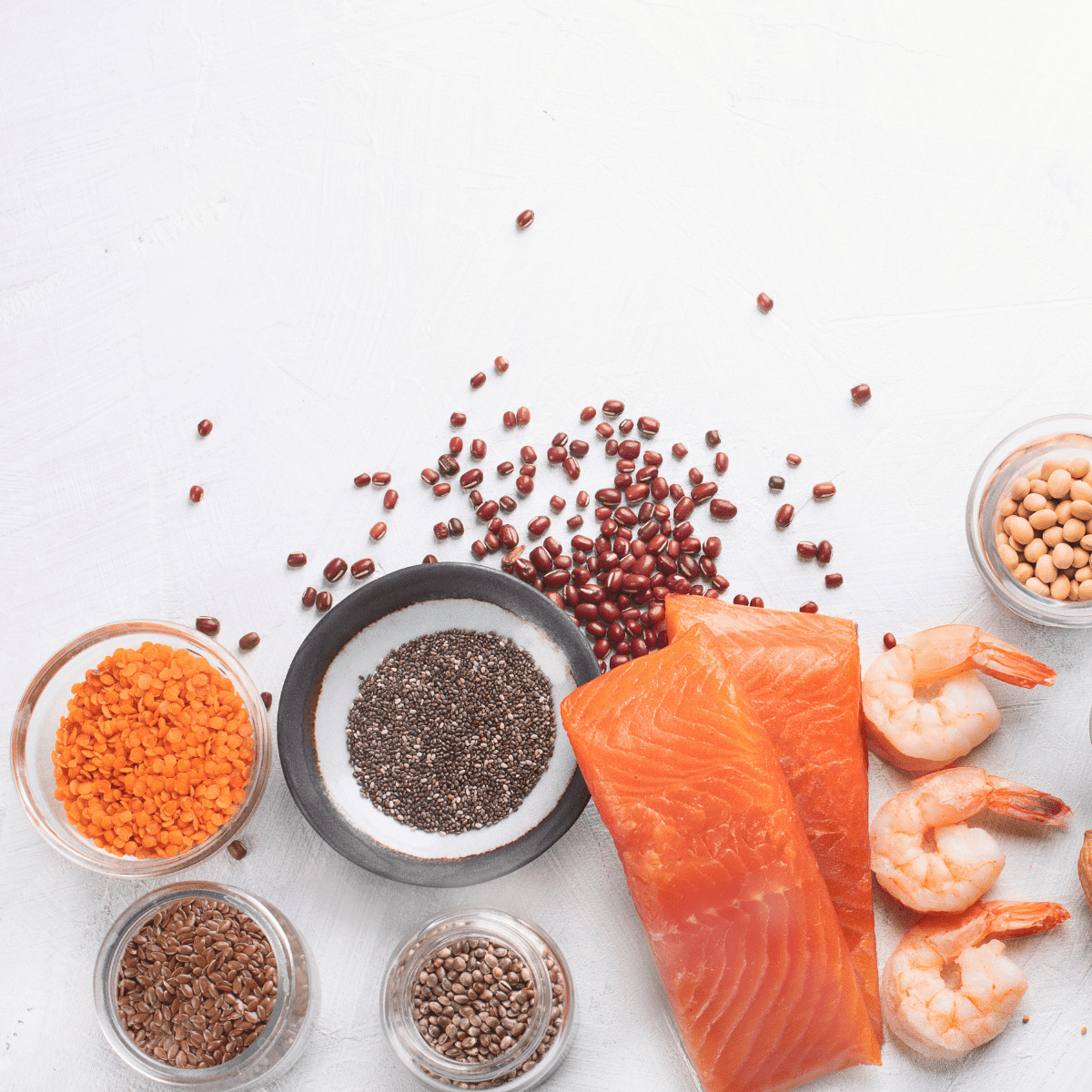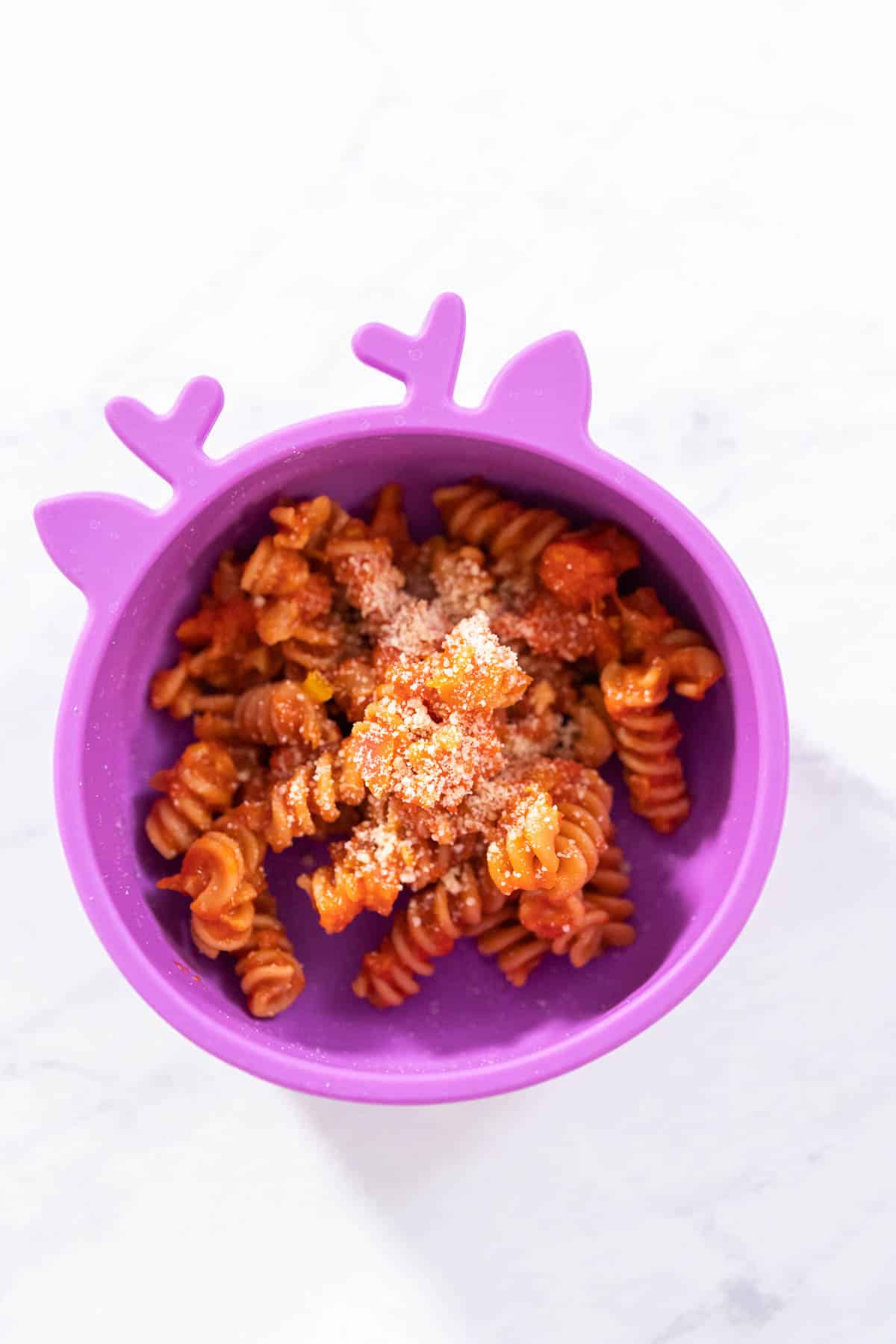
Menu
Is it possible to boost your toddlers’ immunity to illness? Or your own, for that matter?
If you google it (which maybe you did), you’ll be met with people who are 100% certain that natural immunity boosting is what it’s all about…but you’re also sure to find others who say not to waste your time. In reality, research has shown that the amount of control you have over your toddler’s immunity falls somewhere in between.
There are some things you can do to support your child’s immune system, like serving immunity-boosting foods. But eating a specific food won’t instantly or magically boost immunity.
In this post, I’ll share the research on toddler immunity and what “boosting it” really means. I’ll also bust—or back—some of the immunity-based rumors out there (can garlic really cure a cold?!). And, I’ll share 20 immune-supporting foods you can work into your child’s diet starting today.
Jump to: 20 Immune-Boosting Foods for Toddlers & Kids

While it’s true that what we eat has a big effect on our overall health, it’s important to know that no one food or nutrient can single-handedly prevent illness. Instead, foods and nutrients work together to contribute to your child’s overall health. That means there are no quick immunity “hacks” or “boosters” the way some marketing would have us believe.
It’s just about serving your toddler a variety of immunity-supporting foods on the regular!
It’s also important to know that when it comes to immunity, your child’s immune system and body and their natural functions are the real MVPs. Any positive, immunity-boosting effects that food has come from supporting those natural functions.
So the best (and really, only) thing we can do to up their immunity is to support their immune systems through balanced nutrition.
As I mentioned above, no one food will change the immune system or magically make it more efficient. The immune system is way more complex—and way smarter!—than that.
(Honestly, the idea that it wouldn’t function properly unless you ate a specific amount of a random food like spirulina powder each day would probably offend it. 😅)
A strong, healthy immune system is made up of expert fighter cells designed to find and destroy foreign bodies and substances, like the ones that cause illnesses. The sole mission of these cells is to keep the entire system healthy. So if we want our kids to stay healthy, we need to keep these cells healthy. And research shows that the best way to do that is by eating nutritious foods.

In one example of how nutrition supports our immune system, a 2019 study by Childs, Calder & Miles found that our immunity “fighter cells” need arginine, a building block of protein, to make nitric oxide, which helps kill off illness-causing pathogens. Another example is how vitamin A and zinc support cell division, which is what allows the body to make enough of these “good guy” cells to fight off invading disease-causing cells.
Arginine is found in many foods like meats, fish, dairy products, nuts, and seeds. Vitamin A is found in orange and red foods like carrots, sweet potatoes, and bell peppers, green foods like broccoli, green leafy vegetables like spinach, and some cheese, meat, and fish. And zinc is abundant in chicken, beef, tofu, pumpkin seeds, lentils, and mushrooms. But while technically, all those foods ARE immune-boosting, you can’t just eat a bunch of them at once to supercharge your immune response!
Eating enough of these and other foods with immune-supporting properties regularly is what will help ensure that the body is functioning at its very best and that it can fight off what it needs to fight off.
Our kids’ immune systems work in the most optimal way when they eat all the macronutrients and micronutrients their bodies need, in the right amounts, most days. Sounds easy enough, right? (I know your eyes are rolling to the back of your head, especially if you have a picky eater.)
If you wanted to track down the exact amount of each nutrient that your toddler needs for optimal health, you could reference the Food and Nutrition Board’s Recommended Daily Allowances (RDAs). But that’s a lot of work and, honestly? It’s typically not necessary.
Instead, focus on feeding your child (and yourself) a variety of nutrient-dense foods regularly. This post will help! This way, you can feel pretty confident that everyone’s bases are covered.
And really, just bookmark my website. You can always come here for quick and healthy meal and snack ideas on my blog, or in the meal guides in my shop.
Related: Download my Immune Boosting Smoothie Guide
Getting enough of all our micro and macronutrients isn’t just about vitamins and minerals. When it comes to illness prevention, most of us think of vitamins, like Vitamin C. But for an immune system to function optimally, it also needs all 3 macronutrients: fats, carbs, and especially protein.
Protein needs increase during fevers and sickness because the body is working harder to fight off the sickness. So focusing on adequate protein intake, especially when your child is sick, can help the immune system respond better.
Related: What To Feed Sick Toddlers
There are a lot of immunity-related rumors circulating. Let’s take a minute to bust (or back) the most common ones, based on what the research says.

Verdict: Mostly myth. (But it may shorten a cold by a little bit!)
Anyone who grew up being served mega glasses of OJ when they were sick will know this rumor well! 😅
At some point in history, the idea that Vitamin C was a magic cold curer spread and then stuck in our brains. And while a magic cold curer would be nice (I could handle fewer kid sick days!), it’s sadly not real.
Research-wise, a meta-analysis of 29 studies involving more than 11,000 children and adults found that taking Vitamin C won’t prevent us from getting colds. It can’t stop a cold in its tracks, either.
That doesn’t mean Vitamin C is worthless, though. Far from it!
Vitamin C is an antioxidant that’s necessary for the body and optimal immune function. So we want to make sure our kids get enough. Also, the meta-analysis I mentioned above did find that taking Vitamin C regularly can shorten the duration of a cold by about 10 percent, and it might make cold symptoms a bit milder, too. I’ll take it!

Verdict: Inconclusive—we don’t have enough evidence.
The use of garlic is rooted (pun intended) in traditional beliefs and limited scientific evidence that suggests garlic may have antimicrobial and antiviral properties. When I say ‘limited’ though, I mean it! Not many researchers have tackled this question, so we don’t have enough clinical evidence to say for sure that garlic could cure or shorten a cold.
I’ve also seen videos of people sticking garlic cloves up their nose…please don’t do this. It’s typically not a good idea to stick anything up the nose, but there’s no evidence that doing this can act as a decongestant.

Verdict: Inconclusive—we don’t have enough evidence.
Omega-3s are a really important part of the diet because they support brain health and eye functioning and have anti-inflammatory properties, among other benefits. But unlike other nutrients, the body can’t produce Omega-3s on its own, so it’s essential that we get them through our diets by eating healthy fats like fish and fish oil, walnuts, and flaxseed. (This is why they’re called essential fatty acids!) Omega-3s are a nutritional powerhouse for sure—but can they cure viruses as some people say?
Preliminary research has been done on what happens when you increase your intake of Omega-3s during a virus, with most studies done on critically ill COVID-19 patients. Viruses produce inflammation, so researchers thought that the anti-inflammatory properties of Omega-3s might affect the virus and speed up healing times. So far, the research does seem promising—but studies are still super limited. We’ll need research to be done on bigger groups of people, more viruses, and to extend this research to children before we can say anything conclusive!
Most of our immunity comes from the natural functions of our bodies and immune systems, which by now, you know we can’t hack, force, or control. But there are certain things we can do to support our bodies and help them function optimally. So let’s focus on what we can control!

Healthy hygiene practices are a great way to reduce the amount of potentially illness-related germs that get introduced into your toddler’s body. Here are a few easy ways to practice good hygiene:
Many viruses are spread through person-to-person contact, so limiting exposure to people you know are sick is a great way to keep colds at bay. (But I know this is SO hard with school and daycare!)
And while we’re on this topic, can we all take a vow to do OUR part to keep our kids home when they’re sick? If there’s a good chance they are contagious, you can do all the other families a favor by keeping your kid at home.
Nutrient-dense foods keep kids’ immune systems operating at their best. You’ll want to focus on:
…or, you could just forget all that 😅 and instead, pick a few foods of our list of 20 immune-boosting foods to work into your toddler’s days!
Here is a list of foods that contain at least some—but sometimes many!—of the immune system-supporting nutrients mentioned in this post, prepared in toddler-friendly ways!

Disclaimer: This contains affiliate links. As an Amazon Associate I earn from qualifying purchases at no extra cost to you.
If you’re thinking about keeping your toddler healthy this cold and flu season, you might want to think about probiotics!
Not all probiotics are created equal—but the right ones can help your toddler get sick less often. This free guide helps you understand probiotics and gives you a list of my favorite, most-trusted brands for easy shopping.

I’m a mom of two and a Registered Dietitian Nutritionist. I offer e-guides and e-books (go to my Shop page), workshops, brand partnerships, and nutrition counseling. Check out my blog for nutrition and feeding tips for your little ones.
This post may contain affiliate links. I may earn a commission. As an Amazon Associate I earn from qualifying purchases.
0 Comments